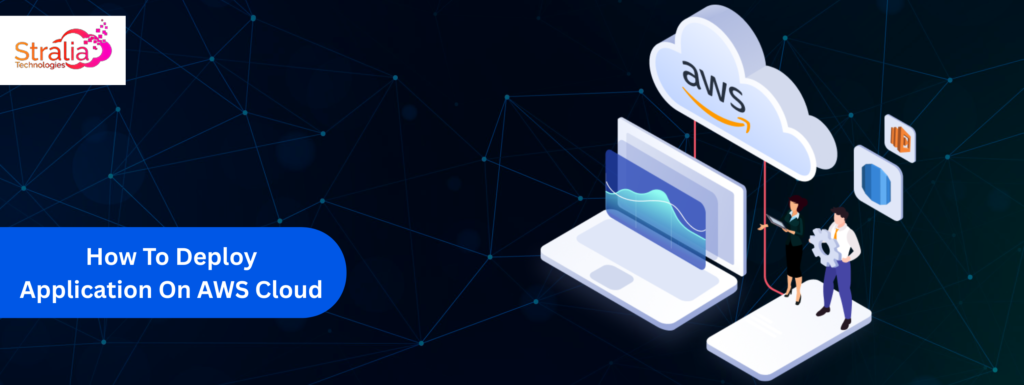Small businesses face plenty of daily challenges, handling IT infrastructure does not need to be one of them. With smart, modern tools, teams can collaborate remotely, protect their data and stay focused on growth without the complexity of managing servers or networks. Here cloud computing for small businesses plays a vital role, offering simplified access to advanced tools without the usual overhead.
By using cloud computing for businesses, small teams can tap into scalable, secure and high-performance solutions once limited to large enterprises. These technologies support real-time collaboration, reduce downtime and keep operations running smoothly across industries like retail, education, healthcare and professional services, all without requiring a large in-house IT team.
Why Small Businesses Are Shifting to the Cloud
Small business owners constantly juggle marketing, operations, sales, customer support and more, often with limited staff and budget. Traditional on-site IT systems not only drain resources but also limit flexibility, leading to slower decision-making and higher risk.
Cloud computing offers a digital infrastructure that simplifies operations, improves data accessibility and reduces maintenance. It removes the burden of managing physical servers or handling software updates manually.
With cloud adoption, small businesses can-
- Run operations from anywhere with internet access
- Automate routine tasks and reduce manual errors
- Improve response times and customer service
- Avoid large capital expenditures on hardware
- Benefit from enterprise-grade cybersecurity features
Want a direct clear consulting before reading it connect with Stralia Technologies, we support Australian small businesses in implementing flexible, secure and growth-ready cloud computing solutions for small businesses.
Key Benefits of Cloud Computing for Small Businesses
If you’re evaluating the benefits of cloud computing for small businesses, here’s how the cloud solves real challenges.

1. Lower IT Costs
Building and maintaining in-house IT infrastructure is expensive. It includes server purchases, cooling systems, software licenses and salaries for IT staff. Cloud computing replaces these with a monthly or usage-based pricing model.
- No more costly upgrades or unexpected repairs.
Budget becomes predictable and scalable with your business.
Stralia Technologies helps migrate your systems to the cloud while keeping costs aligned with your current and future needs.
2. Enhanced Collaboration
Cloud platforms make it easy for your team to work from anywhere using shared files, real-time updates and integrated communication tools.
- Collaborate across departments or locations without delays.
- Use tools like Microsoft Teams, Google Workspace or other all synced in the cloud.
Whether your team is in one office or spread across multiple cities, cloud computing for businesses ensures everyone stays connected and productive.
3. Stronger Data Security
Cybersecurity is a growing concern, especially for small businesses without dedicated IT teams. Cloud providers invest heavily in security protocols, including data encryption, firewalls, identity management and regular security patches.
- Built-in backup, monitoring and compliance support
- Reduced risk of ransomware, theft, or data breaches
- Role-based access control and multi-factor authentication
Stralia Technologies configures cloud environments with security-first principles, ensuring your data stays protected and compliant.
4. Easy Scalability
Traditional systems require you to purchase new hardware or licenses when your business grows. Cloud platforms, however, let you scale resources instantly.
- Add or remove users, apps and storage without delay
- Handle seasonal spikes or business expansion without downtime
- Launch new locations or services faster with cloud-hosted systems
This flexibility makes cloud computing an ideal fit for small businesses preparing for growth.
5. Automatic Updates
Software updates are critical for security and performance but are often overlooked in traditional setups. Cloud providers handle them automatically.
- Access the latest features and security updates without disruption
- Free your team from manual patching or version management
- Avoid downtime caused by outdated systems
Stralia Technologies ensures your cloud setup stays up to date and optimized, so you stay focused on your business, not the backend.
Real-World Case Study -Cloud in Retail
Client- A local retailer running a brick-and-mortar shop alongside an eCommerce website.
Challenge- The business was facing stock mismatches, manual data entry errors and a lack of visibility between online and offline inventory.
Solution— Stralia Technologies helped them transition to a cloud-based POS and inventory platform. As a result, they were able to –
- Sync online and offline inventory in real-time
- Track sales, customer data and returns across all channels
- Automate purchase orders based on low-stock alerts
- Access dashboards and reports from any device
- Set up remote staff access to monitor operations
This shifts improved customer satisfaction, reduced overhead and enabled the retailer to confidently expand to a second location.
Thinking about upgrading your systems? Cloud experts at Stralia Technologies can help you how cloud fits into your growth plan.
Types of Cloud Computing Services for Small Businesses
Understanding the different cloud service models helps you select the right option based on your current and future needs.

Software as a Service (SaaS)
Cloud-hosted software accessed via web browser, no local installation needed.
Examples – Microsoft 365, QuickBooks Online, Dropbox
- Ideal for – Email, billing, CRM, HR, collaboration tools
- Benefits – Fast setup, low maintenance, automatic updates
Infrastructure as a Service (IaaS)
Virtual computing resources like servers, networking and storage. You manage the software; the provider manages the infrastructure.
Examples – Amazon Web Services (AWS), Microsoft Azure, Google Cloud
- Ideal for – Hosting websites, databases, custom-built apps
- Benefits – High flexibility and full control without hardware headaches
Platform as a Service (PaaS)
Development and deployment environments for developers to build custom apps.
Examples – Microsoft Azure App Services
- Ideal for – Startups or businesses building internal applications
- Benefits – Saves time on backend setup and infrastructure management
Stralia Technologies helps small businesses mix and match the best cloud computing services for small businesses, based on your size, goals and team.
How to Choose the Right Cloud Provider
Going with a cloud solution is more than picking a vendor, it’s about finding the right partner. Here’s what to consider –
Criteria | Why It Matters |
Security & Privacy | Look for encryption, compliance (GDPR, ISO), data residency |
24/7 Support | Round-the-clock support ensures minimal downtime or delays |
Ease of Use | Platforms should be simple for non-technical users to adopt |
Integration | Ensure seamless integration with tools you already use (CRM, accounting, etc.) |
Scalability & Flexibility | Choose a solution that grows with your business, not one that holds you back |
Stralia Technologies partners with trusted providers like Microsoft Azure, AWS and Google Cloud to deliver custom cloud environments with full support from planning to execution.
Common Small Business Problems Solved with the Cloud
Problems | Cloud-Based Solutions |
High upfront technology cost | Pay-as-you-go IaaS and SaaS platforms |
Lack of IT expertise | Fully managed services and intuitive platforms |
Remote work difficulties | Real-time collaboration and shared tools |
Security gaps and data loss | End-to-end encryption and automatic backups |
Inconsistent performance | Reliable uptime and automatic updates |
Ask Us Anything about cloud computing
1. We are growing but can’t afford a big IT setup, how can we keep up?
Cloud computing for small businesses offers enterprise-grade infrastructure without high capital costs. With Infrastructure as a Service (IaaS), you get virtual servers, networking and scalable storage, all on a flexible pay-as-you-go basis. No bulky hardware or upfront investment needed.
One of the biggest benefits of cloud computing for small businesses is the ability to scale tech resources while keeping costs lean.
2. How does cloud help my remote team stay connected?
The best cloud computing services for small businesses enable seamless collaboration across locations. Platforms like Microsoft Teams and Google Workspace support shared files, virtual meetings and real-time editing, ideal for hybrid and remote work models.
A top reason cloud computing solutions for small businesses are growing improved team productivity and connectivity, anytime, anywhere.
3. We are worried about cyberattacks. Is the cloud securing enough for us?
Yes. Leading cloud providers offer enterprise-grade security features such as encryption, firewalls and multi-factor authentication. These safeguards protect against ransomware, breaches and downtime, without needing an internal IT team.
Among the most valuable benefits of cloud computing for small businesses is built-in security that’s trusted by global enterprises.
4. What if I need to expand quickly, can the cloud keep up?
Absolutely. Cloud computing solutions for small businesses are built to scale. Add users, apps and storage instantly ideal for sudden growth, new hires, or launching new services.
With the scalability of cloud computing, small businesses can move fast… without delays or costly upgrades.
5. I’m not technical. Will using cloud tools be difficult for my team?
Most Software as a Service (SaaS) tools are user-friendly, with simple dashboards and no installation required. Log in and go. Plus, updates are automatic freeing your team from tech headaches.
Ease of use is why SaaS is a top choice among the best cloud computing services
for small businesses.
6. Can cloud tools replace my current business software?
Yes. From CRM to accounting, cloud computing for small businesses includes full-featured replacements for legacy tools. These apps often integrate with your existing systems to streamline operations.
A smart switch to cloud-based business tools can eliminate data silos and increase workflow efficiency.
Final Thoughts – Cloud as a Small Business Growth Driver
Cloud computing for small businesses is a smart, future-focused move that brings flexibility, cost savings and scalability into the hands of small teams.
When you work with Stralia Technologies, you’re not just adopting cloud tools, you are building a modern digital foundation for growth. We help you –
- Lower operational and IT costs
- Improve collaboration and team flexibility
- Increase customer satisfaction through better systems
- Secure your digital assets from cyber threats
- Scale up instantly when the time is right

Ready to move forward? Stralia Technology offers end-to-end cloud support, from migration and setup to management and ongoing optimization.
From initial strategy and setup to day-to-day management and performance optimization, we align every cloud move with your business goals.











Leave a Reply